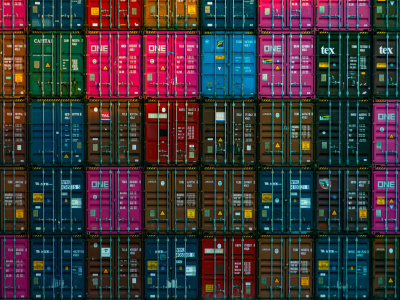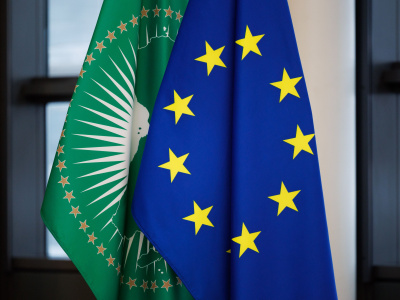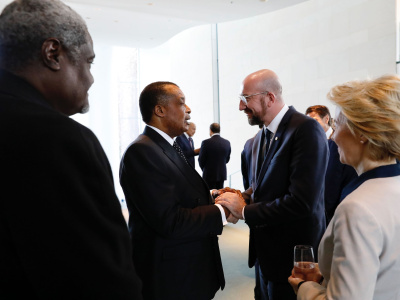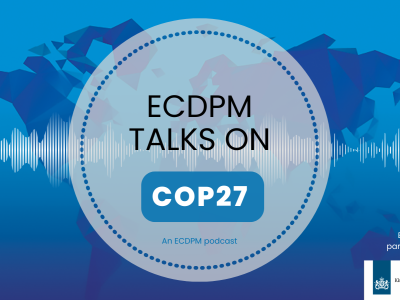
The AU-EU partnership for peace and security
The European Union (EU) has been a long-standing partner for peace since the African Union (AU) came into existence. As the AU marks its 15th year, it is useful to reflect on what the partnership between the two continents and organisations has achieved and to identify specific initiatives for the future in terms of ongoing cooperation.
Making the AU fit for purpose
In January 2017, to mark the 15th year since the organisation was formally launched, the AU Assembly of Heads of State and Government adopted a report titled The Imperative to Strengthen Our Union, containing recommendations for institutional reform of the African Union. This report was compiled by President Paul Kagame of Rwanda with the collaboration of a panel of senior African leaders. The report identifies climate change, violent extremist ideologies, disease pandemics, and mass migration as being amongst the key issues that urgently need to be addressed by “focused and effective regional organisations”. The Kagame Panel report laments: “the unfortunate truth is that Africa today is ill-prepared to adequately respond to current events, because the African Union still has to be made fit for purpose. This is a forthright and honest appraisal of the state of the African Union 15 years after it was launched with much fanfare and great expectations in 2002 in Durban, South Africa.
The 15th year of the African Union’s existence also marked the arrival of a new leadership team when, in March 2017, Moussa Faki Mahamat, the former Chadian foreign minister, became the chairperson of the AU Commission and Kwesi Quartey, the distinguished Ghanaian diplomat, became his deputy. It is promising that Moussa Faki and his team of Commissioners are approaching their mission at the AU with a degree of pragmatism about the constraints and possibilities they face. Specifically, on 14 March 2017, during his first public address as the AU Commission chairperson, Moussa Faki outlined six priorities, including the need “to reform the structures” of the organisation to make it “a tool capable of translating into reality the vision of our leaders and aspirations of our peoples”. In addition, Moussa Faki emphasised the need to address the continent’s conflicts and enhance the participation of women and young people in promoting peace, development and the revival of the continent. Moussa Faki also identified the promotion of economic integration with a specific focus on “increasing inter-African trade and free movement of people so that Africans can finally cease to be foreigners in their own continent”. He argued for the revitalisation of Africa’s private sector to enhance wealth and job creation, and for strengthening Africa’s engagement in international relations. These are all important entry points for the EU to revitalize its engagement with the AU and advance the strategic partnership.
A perennial constraint in the African Union’s ability to assert itself on the international stage is its reliance and dependency on donors to pay salaries and finance its operations and programmes, including in the sphere of peace and security. The EU has been a key partner in this regard. However, there have been increasing levels of criticism, from observers and political leaders, about the AU’s inability to own their peace and security initiatives. Specifically, this remains a challenge for the African Peace and Security Architecture (APSA) and the African Governance Architecture (AGA), and has raised questions about the true “ownership” of Africa’s institutions. Consequently, in July 2016, the AU Assembly of Heads of State and Government adopted a decision on financing of the Union to institute a 0.2% levy on eligible imports. The importance of this decision was reiterated in the report ‘Securing Predictable and Sustainable Funding for Peace in Africa’ by Donald Kaberuka, the AU High Representative for the Peace Fund. This is the first genuine attempt to wean the Union and its institutions off its donors, particularly in the sphere of promoting peace and security. Over the next decade of the EU-AU strategic partnership, both institutions should support this levy initiative, to avoid insinuations that the AU is not “owned” by Africa. Concretely, the EU can further assist the AU in policy reflection on the use of levies to financing international organisations. The prospective income stream generated by self-funding will enable the AU to underwrite its own initiatives and provide a basis for the organisation to engage more effectively with African citizens across the continent.
Consolidating peace and accountability
The UN’s Sustainable Development Goals (SDGs) and in particular Goal 16, calls for the consolidation of peace, security and access to justice. This means that over the next decade of the strategic engagement, both the EU and the AU will need to focus their energies on national and regional reconciliation processes across the continent through the promotion of accountability, redress, and restitution. Africa’s experience in dealing with the past and managing societal tensions means that ‘dialogue platforms on diversity’ could help European communities to learn from their African counterparts, given the rising tide of identity politics and problematic posture towards immigrants in some countries. This would also challenge the perceived trend in knowledge and skills transfer from Africa to Europe, which has historically been unacknowledged and under-emphasized.
The next decade of the strategic partnership between Europe and Africa will witness a reconfiguration of the nature of the relationship as the African continent begins to assert itself more on the global stage. This is however not a reason for Europe to become concerned or inward-looking because such a remaking of global order will ensure that prosperity will increase on both sides of the Mediterranean sea, which will ultimately be beneficial for the people of both continents.
About the author
Professor Tim Murithi is Head of Programme at the Institute for Justice and Reconciliation, Cape Town, and Extraordinary Professor of African Studies, University of the Free State, Bloemfontein, South Africa. He is editor of the Routledge Handbook of Africa’s International Relations.
Read the full magazine issue








